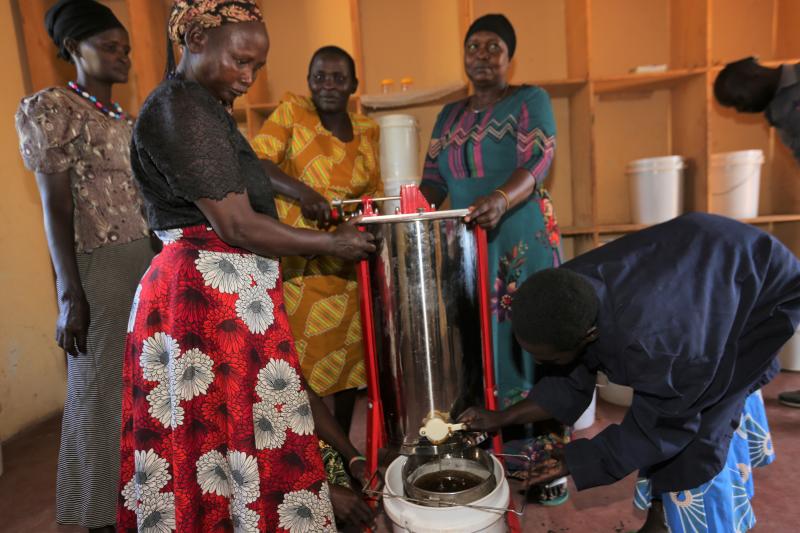×
The Standard e-Paper
Join Thousands Daily

At the crack of dawn, Lucy Lodungu joins some women in one of the homes in Kodich village, West Pokot County, to extract honey.
The previous night, the women had hired a group of men to harvest honey from their over 100 top-bar beehives.